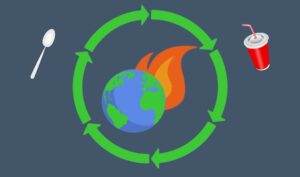As we welcome in a new year, there’s no better time to adopt new habits and kick old ones to the curb. January is often the month for making bold resolutions, whether it’s to go to the gym, eat healthier, or even adopt a better work-life balance. But why stop there? Why not set a resolution to reduce your own environmental footprint in 2019?
Back in 2018…
There were many developments in the environmental community at both a local and global scale. National Geographic published shocking research about plastic pollution in our oceans. As a result, people became more aware of the effects of plastic in our oceans. People began to shift to a more plastic-free lifestyle.

Similarly, organizations like the Giraffe Conservation Fund made further headway into protecting and conserving these endangered wildlife.
Back in Canada, there was a growing momentum to phase out single use plastics, adopt a zero-waste lifestyle, and to support local businesses that put the environment and community first, including those that are B-Corp certified.
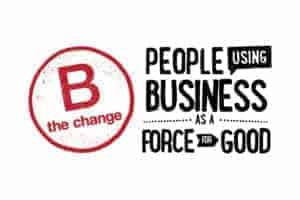
As it’s becoming easier to adopt a zero waste lifestyle, or make changes to one’s habits, we believe that 2019 will be a perfect year to commit to a ‘green’ resolution. In other words, why not make your sustainable lifestyles a core part of your New Year Resolutions?
Here are some ideas to get you thinking about ‘greening’ your New Year resolutions for 2019!
We divided our tips into two categories: 1) residents, and 2) for businesses.
Residents
Resolution 1: Reduce food waste.

As people set goals to eat healthier and cook more, why not think about how you can reduce food waste at home?
Your resolutions can be as simple as putting an effort into sorting your organics from your garbage and recycling bins. Or, you could even set a goal to meal plan more, so that less food goes to waste.
Another goal could even be finding out new ways of cooking leftovers or turning close-to-expiring food into jams and other preservatives.
The new year is a great time to learn new recipes, so why not make reducing food waste and eating healthier a part of it?
Resolution 2: Reduce single-use plastics and disposable styrofoam containers.
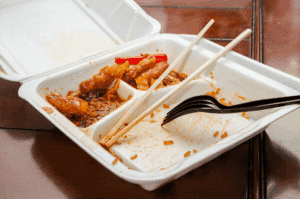
This could be a good resolution to commit to if you’re a busy worker or student.
Pack a lunch, or even an empty lunch box, and bring it to work if you’re planning on buying lunch. Similarly, toss a reusable travel mug into your work bag to reduce the disposable coffee cups and drinks you’d buy during the day. Depending on the restaurant, cafe, or even fast food drive through, you could also try to request using your own mug for drinks, or hand them your empty lunch box to pack in your left overs.
Not all places allow this, but why not experiment with becoming more assertive about your zero-waste habits?
Resolution 3: Fix up, restore, or repurpose something from your home in 2019!
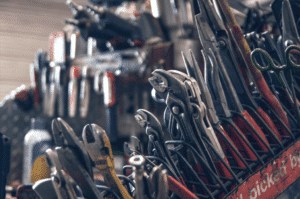
This can help you not only learn new skills, like sewing, woodworking, or other handy skills, but also reduce the amount of waste going into your garbage and recycling. It’s true that it’s better to reduce your consumption in the first place, as opposed to relying on recycling your waste.
One way to achieve this is by taking the time to fix your belongs instead of throwing them out. You’d be surprised how much longer you can extend your belongings’ life span.
Think about setting a new years resolution to fix one piece of clothing instead of buying something new; to learn to sew buttons, reshine or fit your shoes, or even turn an old pair of jeans into a tote bag. Think about resanding and repolishing wooden furniture to bring antique aesthetics into the modern age. Look into removing stains on your belongings instead of throwing out the item.
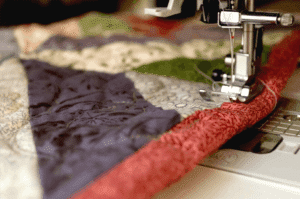
If you’re feeling creative, think about the different artistic pieces you could create with electronic waste, or even paper scraps from your drawing and paper crafting hobbies. These don’t have to be exhibition-ready pieces. Keeping these pieces around your home can become conversation-starters when friends and family visit!
Businesses
New Year Resolutions can be a good way to usher in changes to an office or store. Many people tend to find drastic changes difficult to adopt, but those aren’t the only resolutions available.
Similarly, many business-related environmental efforts are dependent on the type of business they’re in.
Restaurants, retail shops, industrial businesses, or even offices have different needs that should still be met when phasing in an sustainability change. It is always important to keep in mind that sustainability changes in the workplace are gradual. Still, gradual changes are better than no changes at all.
Here are some of our suggestions to incorporate environmental sustainability into your workplace:
Idea 1: For retail shops and restaurants, look into reducing your reliance on single use plastics.
Take-out food can be one of the biggest contributors to single use plastic waste. As consumers shift to ban these kinds of plastic, it’ll be beneficial for your store or restaurant to adopt similar practices. However, instead of a complete ban, which may not be possible, consider sourcing recyclable, recycled, or compostable take out boxes and utensils. This way, your customers can recycle or compost these items at home, instead of throwing out in the garbage.
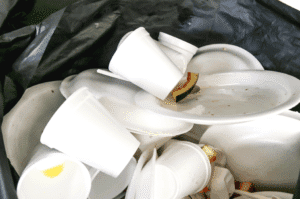
Independent stores may also have a better chance to adopt a plastics-less model. Swap out plastic bags for reusable ones, or even provide a monetary benefit when people bring in their own reusable bags. Incentives foster zero waste habits.
More and more people are choosing where to shop and eat based on the business’s environmental impact. Word travels fast about what businesses are eco-friendly, and what businesses aren’t. Not all businesses can adopt complete zero-waste initiatives, but businesses should do their best.
Idea 2: Offer sustainable alternatives to shipments to reduce packaging waste.
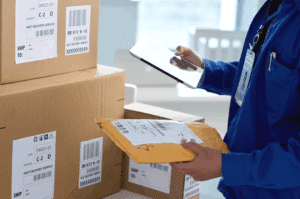
Even though this may depend on what is being shipped, one possible business-related resolution is to reduce packaging waste. Packaging can also be expensive, so reducing packaging costs can be beneficial to your company’s bottom line. From reusing packaging or saying no to styrofoam pellets, there are many ways to minimize waste and improve your bottom line. Sustainable fulfillment can be even as simple as using sustainable packaging, like FSC certified mailing slips. More and more it’s becoming easier to source mailing slips and packaging made from recycled paper.
Even though some local BC depots accept soft plastics for recycling, it is important to reduce waste before it is even generated. This way, consumers are able to reduce their own trips to the depots, or to the recycling centers. Ultimately, fewer packaging waste means fewer environmental impacts like air pollution.
Idea 3: If you’re looking for a bold resolution for 2019, look no further.
Think about converting your office, warehouse, or even your washroom facilities into zero waste rooms. This can be as simple as placing garbage, recycling, and organics recycling bins in convenient locations on-site, or providing office mugs, drink condiments, and more, in the break room. Instead of stocking the breakroom with packs of drink condiments like sugar and milk, think about buying a bulk container with these condiments instead. Encourage your staff to reuse cups and mugs.
Alternatively, host competitions and challenge your staff into bringing lunch using reusable containers instead of grabbing take-out. Or if you’re catering for an event or a office meeting, look into turning the event into a zero-waste one by working with the catering company of your choice. The best way to encourage sustainable efforts at work is by making the changes as accessible as possible.




